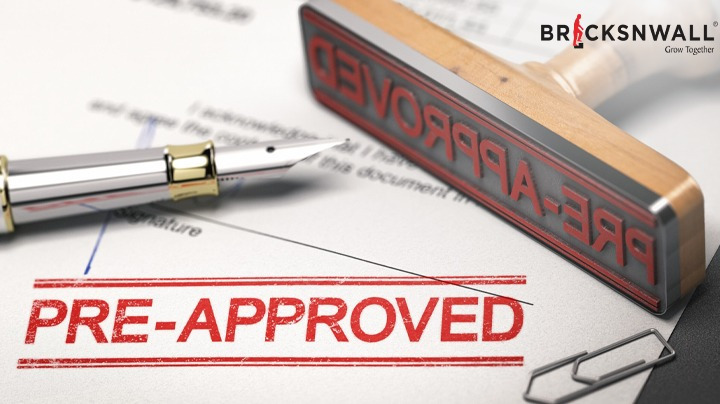Why pre-approval is an important step for today's homebuyers
Koheli

Introduction
This season, it's imperative to be strategic and proactive while purchasing a property. Pre-approval is required nowadays because of this.
You may be familiar with the term "pre-approval" when it comes to mortgages, but you might not know exactly what it means. Pre-approval is the process of getting a mortgage pre-approval letter.
This is important because it shows a lender that you're a serious buyer and will likely get a mortgage loan. In other words, it gives you some clout when your out house hunting.
Steps to Pre-Approval
Pre-approval is the essential first step in the home-buying process. When pre-approved, a lender has already done a preliminary check on your credit and determined how much money they will lend you. This takes the guesswork out of finding a home within your budget and speeds up the process once you find the perfect home.
To get pre-approved, you will need to provide basic information about yourself, such as your income, debts, and assets. You will also need to provide documentation to support this information. The lender will review all of this information and give you a pre-approval letter showing how much money they are willing to lend you and on what terms.
Remember that pre-approval is not a guarantee that you will get the loan. It indicates that you are a good candidate and that the lender is willing to work with you.
How Pre-Approval Helps Buyers
Pre-approval for a mortgage demonstrates to the seller your seriousness as a buyer. They know that a lender has already approved you, so there's no need to wait for the bank to do their due diligence on your loan. This puts you in a much better position to negotiate a better price on the home you want.
It also gives you some peace of mind. You know you're qualified for a mortgage so that you can start house-hunting confidently. You'll be able to focus on finding the right home rather than worrying about whether you can afford it.
Expectations from a home loan
So, what are lenders looking for in loan applicants seeking pre-approval? They'll closely examine your income, credit score, and debt-to-income ratio. As a homebuyer, you should also provide lenders with additional documentation to prove your financial health. This includes bank statements, pay stubs, tax returns, and more.
Lenders are also taking a deeper look into your debt. If you have credit card debt, auto loans, student loans, or any other type of debt payment plan currently in progress, expectations are that things are current and up to date with all of them. This will play a major role in your eligibility for pre-approval.
Making a Competitive Offer with Pre-Approval
When it's time to make an offer on your dream home, pre-approval is a strategic way to make sure your offer is competitive. When you're pre-approved, the seller's real estate agent knows you're a serious buyer who can close the deal quickly and easily.
Pre-approval gives you bargaining power when it comes to negotiating. It also shows the seller that you've been approved for a certain amount, so they know that you have the financial stability to cover the cost of the house. This will be especially important if you want to purchase the cash home and compete against other buyers taking out a loan.
Lastly, having pre-approval before entering negotiations helps streamline the process for everyone involved and gives you more confidence in your decisions. Pre-approval is essential in today's home-buying process, so make sure to do it before entering into negotiations!
Conclusion
The process of purchasing a property requires pre-approval in order to proceed. By getting pre-approved for a mortgage, you'll know how much you can afford and avoid the hassle of being rejected for a mortgage after you've found the home you want to buy.
Contact a mortgage lender today to get started on the pre-approval process.




